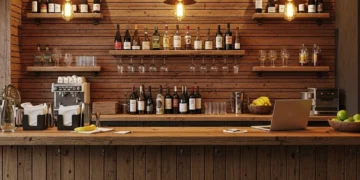University towns represent some of our most dynamic living environments, where transient populations create unique housing demands. Developing accommodation that meets student needs involves far more than basic construction, it requires understanding academic rhythms, social dynamics, and evolving living expectations. Successfully addressing these needs means creating spaces that support both educational achievement and personal growth while withstanding intensive use.
Understanding Specialised Requirements
Student living differs fundamentally from standard residential situations. These environments experience complete annual turnover while maintaining full occupancy throughout the term. Furniture, fixtures, and finishes must withstand constant use while remaining attractive to new cohorts each year. Beyond durability, students now expect technology-ready spaces, collaborative areas, and wellness-focused designs that support their academic journey and social development.
The Development Team’s Crucial Role
Student accommodation developers face the complex task of balancing educational requirements with practical construction realities. These professionals must interpret institutional visions while managing budget constraints, timeline pressures, and regulatory requirements. Their expertise lies in translating academic needs into built environments that function effectively for students while remaining financially sustainable for institutions. This requires specialised knowledge that goes beyond conventional construction expertise.
Builders: Bringing Designs to Life
Construction teams transform architectural plans into physical structures that meet precise specifications. Their responsibility extends beyond mere assembly to ensuring every element supports student living requirements. From installing soundproofing between rooms to implementing robust networking infrastructure, builders must execute designs with precision while maintaining flexibility for last-minute adjustments. Their practical experience often provides valuable insights that improve functionality and reduce future maintenance needs.
Advisors: The Strategic Navigators
Independent construction advisors serve as essential guides throughout the development process. These specialists offer objective perspectives on design feasibility, material selection, and regulatory compliance. They help identify potential issues before construction begins, recommend cost-effective alternatives, and ensure projects meet all safety and accessibility standards. Their oversight helps maintain project momentum while preventing costly errors and delays.
Budget Management Strategies
Financial oversight requires careful balancing of initial costs against long-term value. Construction professionals help institutions make informed decisions about where to invest for maximum impact. This might involve selecting slightly more expensive materials that will last longer or incorporating energy-efficient systems that reduce operational expenses. Their cost management ensures projects deliver quality results within established financial parameters.
Regulatory Compliance Assurance
Student housing must satisfy numerous regulations governing safety, accessibility, and institutional requirements. Construction teams and advisors work together to navigate this complex landscape, ensuring designs meet all necessary standards from the outset. This proactive compliance approach prevents costly revisions and delays while guaranteeing that facilities provide safe, accessible environments for all students.
Technology Integration Planning
Modern student living demands seamless technology integration throughout residential spaces. Construction specialists ensure infrastructure supports high-speed connectivity, security systems, and innovative building features. Their forward-looking approach incorporates flexibility for future technological advances, ensuring that buildings remain relevant as student needs and expectations continue to evolve.
Sustainability Considerations
Environmental responsibility has become increasingly important in the development of student housing. Construction teams implement sustainable practices through energy-efficient designs, waste reduction strategies, and environmentally conscious material selection. These considerations not only reduce operational costs but also align with values important to today’s student populations.
Working Together for Quality Student Accommodation
Creating quality student accommodation requires collaboration between educational institutions, developers, builders, and advisors. Each plays a vital role in ensuring finished spaces meet student needs while supporting institutional goals. By working together throughout the development process, these professionals create living environments that truly support student success, spaces that feel like home while promoting academic achievement and personal growth. The result is student housing that serves immediate needs while remaining adaptable for future generations.












